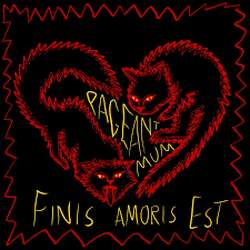Positive Disintegration is an ideal name for this album, the follow-up to Positive Energy, which DIÄT released in 2015. The record is dreary post-punk with a lot of repetition and monotone vocals that carry a beaten-down-by-the-world-but-the-show-must-go-on vibe. “We,” starts things on this path, but as the record progresses that exasperation turns to a call for action at times.
The very next song, “Foreign Policy” has a pop beat that gets the foot tapping and thinking about the possibilities. It’s almost positive except, well, that it’s called “Foreign Policy,” and the bass-heavy mix favors a muddier tone. But the tide is turning. Then there is awakening on “What’s It Got To Do With Me?” While I would summarize this overall record as less upbeat than this song, “What’s It Got To Do With Me?” really captures the zeitgeist. From the spacy synth intro to worker bee repetition of the hook, it’s a dystopian wake-up call when the main character is no longer just a cog in the machine, but a sentient being ready to break the mold. It sounds ridiculous to call it post-punk pop, so I’ll just say it’s like a really dark new wave song instead. While I’m calling the song a beacon of hope amid a bleak world, it’s also an outlier.
The record shifts gears with “What’s It Got To Do With Me?”, but tonally it still favors the complex, drawn-out post-punk arrangements that favor repetition over anything remotely danceable. Musically the inclusion of synthesizer and effects, provide glimmering but mechanical positivity among the dreary vibes. It’s not exactly depressing, but it’s bleak -- with shining, subtly emotive moments within. The beat of “Dogshit” offers potent escape from the confines, nicely complemented by the rising guitar repetition. Likewise, switching up the vocal style in “Only My Own” and “Missed the Bus” gives added depth and nice variety, especially in contrast to the minimalism of the latter song.
DIÄT embrace monotonous tones while managing to make a diverse record, with strong, subtle, tight, and dense songwriting.




